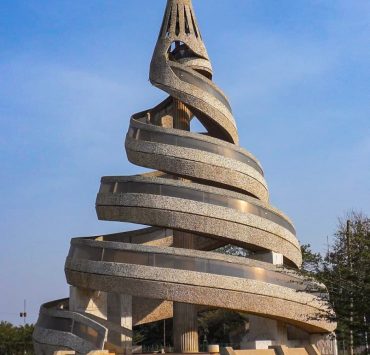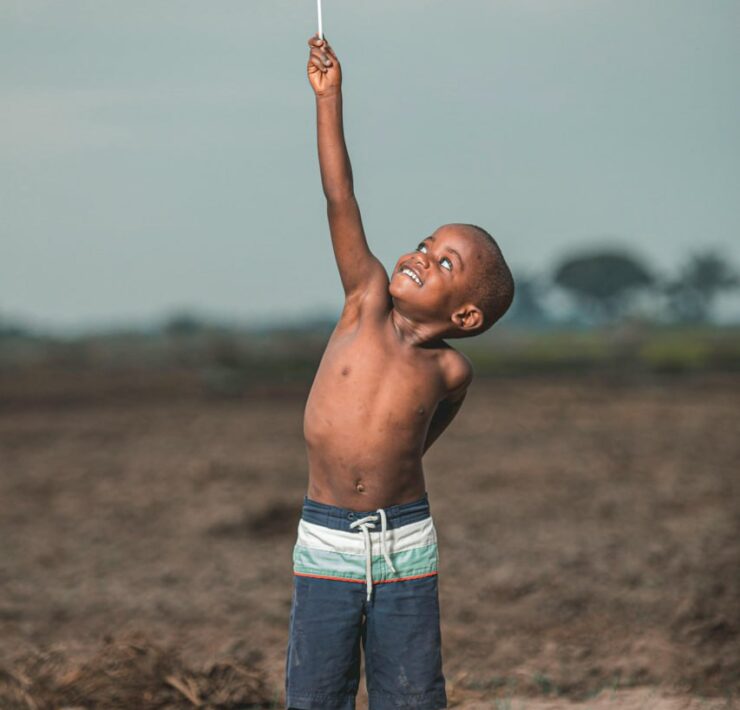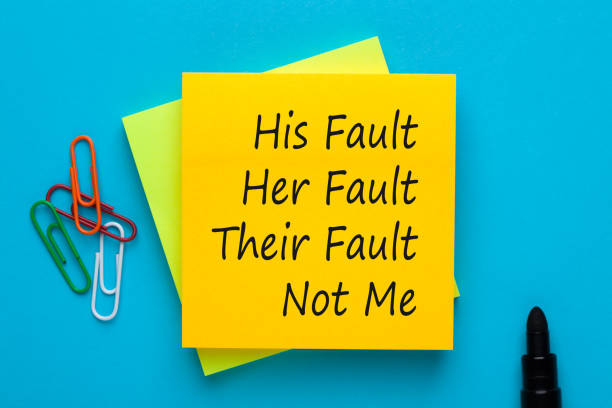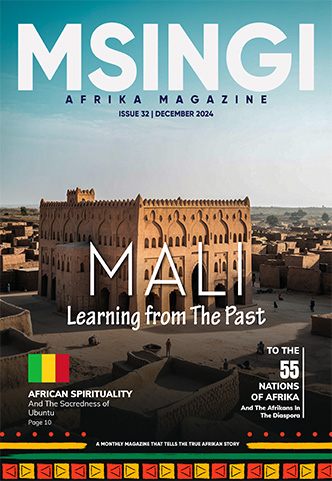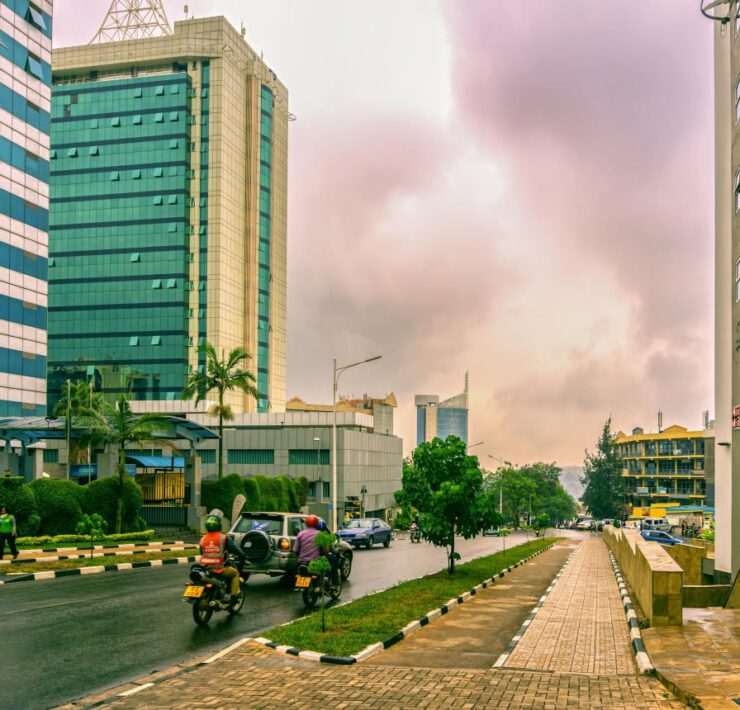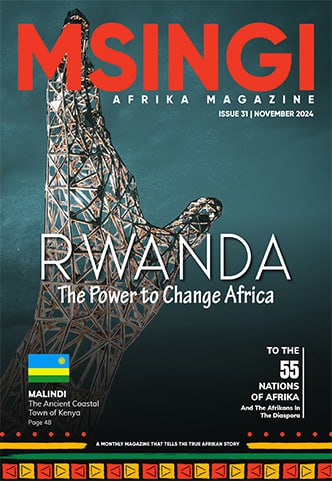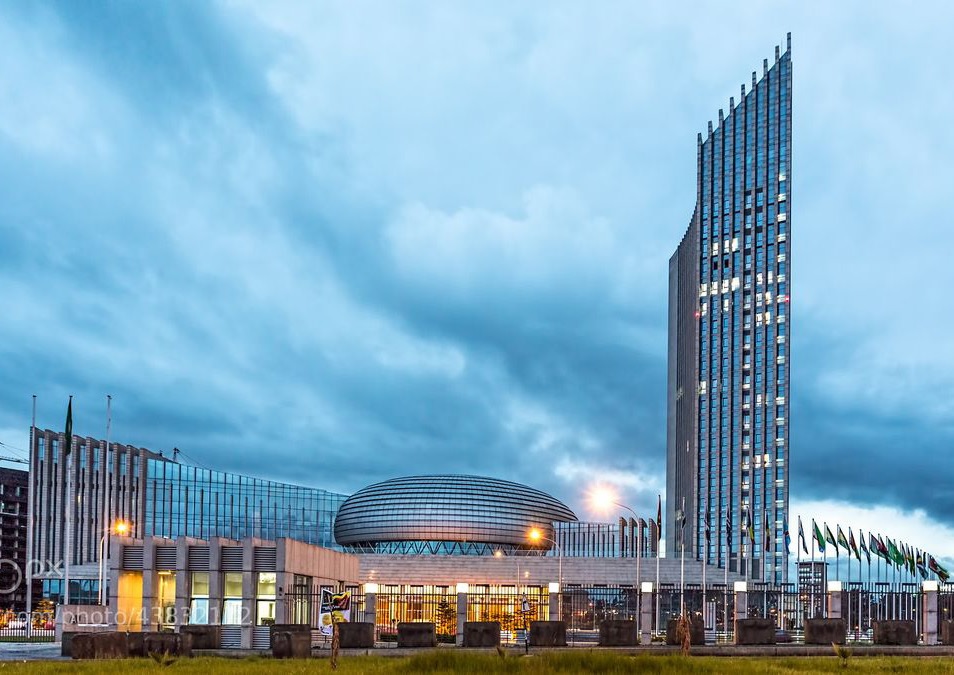
Chioma Phillips is the Editor of Msingi Afrika Magazine and…
I made a comment on someone’s post on social media that earned me ‘a profile inspection’ but no response by the author. I suspect that it is because my comment ran somewhat contrary to what the ‘acceptable’ conversation is concerning certain globalist viewpoints.
The author said, “Recently I wrote about Africa not having a sufficient voice in the Energy Transition “discussion”. Financial Times @David Pilling asks on Climate change, how is the world “really” engaging with African countries that must catch up on Development? Grin and bear it? What do you think?” This post was in reference to an article by David Pilling titled, “Has Africa been cropped out of the climate change debate?”
Other responses were more along the lines of the kind of talk-talk you find in Afrikan and international workshops and conferences – defeatist, collaboratist perspectives that tend to leave Afrika exactly where she is – stuck and seemingly inept at solving her own problems, totally dependent on permission from others to take a step, or a breath:
(Reply) “Love this. Climate change is such an important agenda, everyone has to engage !!”
(Reply) “What would we say? Most countries will do what suits them. It is little different to sharing vaccines.” (This one became a conversation between them)
(Author) “We have so much to say…inequality in “fortunes” broadly defined should not mean our voices are unequal, in my view.”
(Reply) “Please give an example of a statement. I am curious. The world runs on realpolitik and interests.”
(Author) “1. Climate change is real
2. 1.4 Bn people in Africa need to be represented in discussions at the G20 (other than through SA). There is a Yoruba proverb that says you cannot shave a man’s head in his absence. (His/her)
3. Africa needs to develop (in an appropriate and cost-effective way) and will use a mix, including traditional fossil fuels, gas and renewables. This has already been agreed.
4. Investment is required in technology and know-how to accelerate the pace of adoption. For example, solar, Africa cannot continue to rely on importation of panels and storage but must be able to manufacture locally. How can we unlock the commitments made to financing and investment?
5. There is more, this is your turf my brother and the discussion is great. We need to educate, motivate and accelerate discussants and the discussion.”
(Reply) “I see a terrible and terrifying analogy between multiple nation-states dealing with Climate Change and dealing with Covid.”
(Author) “both are terrible threats; I see climate change as existential. So are the inequalities that threaten peace and stability. There are many nations vying for leadership. Perhaps direction will emanate from one of these. Nonetheless, I also believe that African leaders, so beleaguered by today’s challenges, have not also spoken effectively, and (asked politely) that the game must change. Africa has demographics on her side, and cannot continue to be excluded.”
My reply, which got me ‘silently inspected’:
“I think we keep missing the point of what’s going on in the ‘global dialogue’ on development. It is not ‘global’, has never been. There are groups of countries deliberately included, and others deliberately excluded and this has been going on for a long, long time. Afrika perpetually finds herself on the ‘excluded but do as we say or else’ list along with some others. Disregarded, considered only as useful for her modern slave labor and her resources. There is no interest in giving her a seat at the table. Here’s why that is a good thing: we get to create our own path. We get to erect our own table and sit at it, bringing our brains to work for the good of the continent. For Afrika to really change, we have to really crop ourselves out of the loop of backwardness that we have been subjected to. Why is it easy for Afrikans to help build other nations outside of the continent but get stuck when it’s time to build theirs? We definitely need a big “Cropping” to take place, one where we crop out the mindset that we have to fit in with the global agenda and ways and to finally do things the way Afrikans do. With excellence, compassion, brotherhood, wisdom and sensitivity. It’s time to take back our path.”
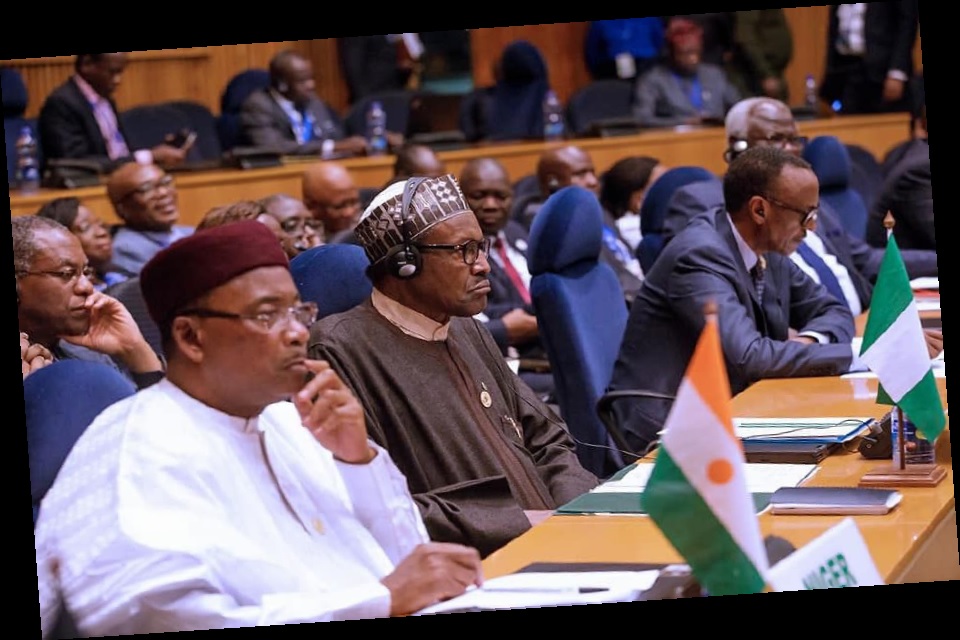 PIN IT
PIN ITTime for an Afrikan Policy on Afrika
Afrika has to stop waiting for the world’s permission to join the dialogue, when it is evident that the mean boys and girls of the world neither want Afrika to join their game nor sit at the table to discuss matters that affect them or partake of their own bounty. The narrative has always been that Afrika does not have the same level of resources that the rest of the world has and yet is constantly in a place where she is receiving aid and being rescued from one crisis or another. Years ago, I had a conversation with someone who (laughingly, but from a place of pain) shared with me their interpretation of what it is like not to have a voice at the table and to be totally discounted, simply because one does not have money. Their voice was not considered to have any weight to lend to the conversation and they were cast aside, as it were, to hold their peace until the ones with the ‘ability’ had finished. It’s similar to a leader in the Somali community in Kenya who said that those who have the most (and best) camels are the ones who will make key decisions concerning sensitive matters that affect individuals and the community at large. Both of these examples are Afrikans dealing with Afrikans. Both groups believed that one’s value is based on their capital or capital-equivalent – not on their spiritual or mental or other reservoirs.
To the west and the east, Afrika has no voice because she has (they lie) no resources to speak of, and is a constant drain on theirs. That is the public claim they make, all the while, Afrika has abundant resource that has, for more than 2 centuries, not only been funding the economic growth of the west and the east, but has been blatantly and mannerlessly exploited, to the detriment of Afrika – all the while, the nastiest and most vile propaganda campaign has been run against the beautiful continent.
The worst part is that shameless lies of the west and the east that are used to deny Afrika an opportunity to participate in decision making concerning her own place and role in this world are embraced as if they were true by Afrika’s so-called leaders. They sit there and agree to be categorized as poor nations that are vile and futile in their thinking and in their ways, while they beg for loans and aid. Between the two of them i.e., the detractors and the ‘leaders’, when, where and how will Afrika ever have the opportunity to speak of her true state, let alone begin to live it out?
We can attend as many climate change, poverty reduction, health intervention, gender equality blah blah blah blah you name it conferences as we like, we can learn to speak the ‘NGO language’ as much as we want, we can sign their agreements, and enact foolish, blind and mindless policies based on G8, G20, MDG, SDG, COP, AGOA, EU this that or the other pacts… THEY WILL NEVER accept or see Afrika as equals. We will remain pawns being used in a game whose rules change to suit whichever wicked puppet master is at the helm. It doesn’t matter how many times we bend over backwards to please them. Tie yourself in knots if you want, you will still be the server at the table.
One gentleman, whose article we have featured in this issue, writes about America’s foreign policy on Ethiopia being amiss. He’s right, it is. So are all the rest of the foreign policies on Afrika. And the reason they are amiss is because of what I have tried to explain already… and because Afrikan leaders have not yet gathered to themselves the requisite self-dignity to be able to tell the rest of the world to go jump in a lake because we, as Afrikans, will be taking over our affairs from here on.
I have told this story before, somewhere, about how I sat in a meeting, befuddled at what I was witnessing. The guy who speaking, a Brit, invited us to ‘imagine for a while’ a scenario where Afrika did not exist. Just for a little while, he said, not that he supports the notion. If I remember correctly, I think he had attended a meeting somewhere where just such a map had been presented and he proceeded to put it up on the screen. Then he presented the demented rhetoric that I just shared about how Afrika is a drain on the world’s resources and if she wasn’t there, the world would be much better off and be able to do much more, with much more speed and efficiency. It’s kind of like a family that has a child who they think has special needs and the thought occurs to them, that they may quicky banish or choose to dwell on, about what their lives would be like if that child wasn’t there. Yes, it’s that horrifying. Glad I caught your attention. There are people who sit around and imagine the world without 1.4 billion people in it and probably increase those figures to the 1.6 billion that encompass those in the diaspora as well. Strange little world, eh? Can you imagine being asked to imagine that you never existed or that your existence on earth was insignificant, and at worst, irrelevant? You need to know that there are people who think that way and act on those thoughts.
But this article is not about them. I have, for the past 9 years or so, been of the mind that Afrika needs to close all her external borders and open her internal ones and sit together as one unit to map a route to continental success and cooperation. That Afrika must cancel all existing multilaterals, bilaterals and any existing trade or other agreements with any country outside Afrika, draw up a strategy for Afrikan success and begin to build it. And, when that is ready and running with strength, turn to the world and say, “Ok, we can talk now. On our terms.” That’s my modern Afrikan utopia. And most seriously we need to do it. Find each other’s strengths as nations and work together to enhance those, even while building up the areas that are weaker. Trade with each other, manufacture for each other, help train and upskill each other, nation by nation, until we have the requisite strength to be a force to reckon with… based on unity, forged by love and brotherhood. Create an Afrikan policy for Afrika that has clear guidelines also about how to deal with the world in a way that creates advantage for us.
They will never let us do it
This is for the person or people who just thought or said that to themselves. My answer is, “It doesn’t matter what ‘they’ want, it matters what we think, say and do.” We must leave behind the treachery of the Sankara, Lumumba, Nkrumah days, the treachery behind the founding of the OAU, the treachery of bi-lateral agreements that selfishly seek gain for solitary nations at the expense of the continent, and we must build our reality. The truth is that, even the turncoats at the AU, AfDB and AfCFTA levels know that true unity for Afrikans is possible and that it is being hindered by external forces. Even the turncoats at presidential and prime ministerial level know that selling out their nations is a temporary non-solution that will eventually see them get swallowed up by a global unitary government that will continue to keep Afrikans in subjugation to their will. They know that the positions they have taken are not sustainable and that the ultimate solution is a strong and united Afrika. While they remain afraid to die for taking a stand – a risk we know is very real and still at play even from recent events – they are aware of Afrika’s need. So, we know that the ultimate goal that we must push for is a strong and united Afrika. That’s one goal that can unite us across the continent and within the diaspora, and it is a goal worth pushing for, using every overt or clandestine means at our disposal to manipulate policies and laws on the continental and international level. Or what did you think your cushy job at the United Nations or World Bank or World Health Organization was for dear Afrikan friends? It’s because you are now a mole in the system who can turn one massive evil into a beautiful thing.
From conversations with people at the African Union, I learnt enough to know that they are fed up of having to run to foreigners for money and resources to be able to carry out their projects. They know they are just lackeys for these foreigners to push policy onto Afrikan ministers and heads of state and government, but they feel hard pressed because they don’t have the autonomy that Afrikan financing would give them.
Gadaffi was able to provide them with some breathing space to roll out more authentically Afrikan programs, because he doled out cash and opened doors, even while pushing for his own agendas within the organization. Just like it is an open fact that the Afrikan governments that contribute the most to the organization, push for greater leverage within it, to secure posts that they use for their own unilateral gain. It is selfish, but it has demonstrated that Afrikan countries can cough up the funds that the AU needs to run itself, independently of external influence. For some reason, they don’t give the AU the cash it needs. If it is that they believe the AU is a body that cannot represent our needs, then they need to put that money behind what can. We need Afrikans of good will and deep pockets, and governments who are committed to be able to create the necessary impetus for projects across Afrika that will bring genuine and lasting change – with or without the African Union and definitely without pushing for any selfish agendas in the process. That’s a second goal that can unite us across the continent.
From interactions with Afrikans across the continent, it is evident that they are aware that the food that they are growing and the way they are growing it is killing us gradually. We also know that our food is not as biodiverse as it used to be, nor our soils as healthy. We also know that enough people are tired of using GMO products that, on top of poisoning and weakening us, are not delivering on promises of higher yields. We need to use our communal, indigenous knowledge from across Afrika to reforest areas, clean waterways, cleanse the air, heal the soil and diversify our seeds across the continent and we need to do this as a matter of urgency. That’s a third goal that can unites us across the continent.
If we throw in Afrikan manufacturing and free movement and settlement of people (Afrikans and those in the diaspora) across the continent, we will not only diversify our food, we will diversify our ideas, cultures and solutions. We will create the seedbed for the propagation of other healthy ideas amongst us and we will live out lives so potent that we will have created a table that the world will be begging our permission to sit at.
The solutions for Afrika are not complicated. Clean food, air and water, safe shelter, mutual love and respect – away from the limiting mindsets of the colonial borders and the false scarcity deception of the neo-colonial imperialist west and east. Simple. To my mind, these are issues that would so galvanize the people of Afrika towards a common goal and purpose that we wouldn’t even have need for another workshop or conference, because the move would drive itself. These are issues worth putting out in the media constantly and worth seeding into our education, movies and books. This, for me, would be the beginning of an Afrikan renaissance that we would be proud of and enjoy.
Subscribe now for updates from Msingi Afrika Magazine!
Receive notifications about new issues, products and offers.
What's Your Reaction?
 PIN IT
PIN ITChioma Phillips is the Editor of Msingi Afrika Magazine and the host of Msingi Afrika Television. Her hope is to see the Truth shared, with all who will listen, for the transformation of the people and the continent of Afrika - and the world. She believes passionately in the critical role that Afrika and Afrikans have to play on earth right now and hopes to ignite the spark that will cause them to see and believe who they are, so that they can live out their Truest lives for the remainder of their days.














